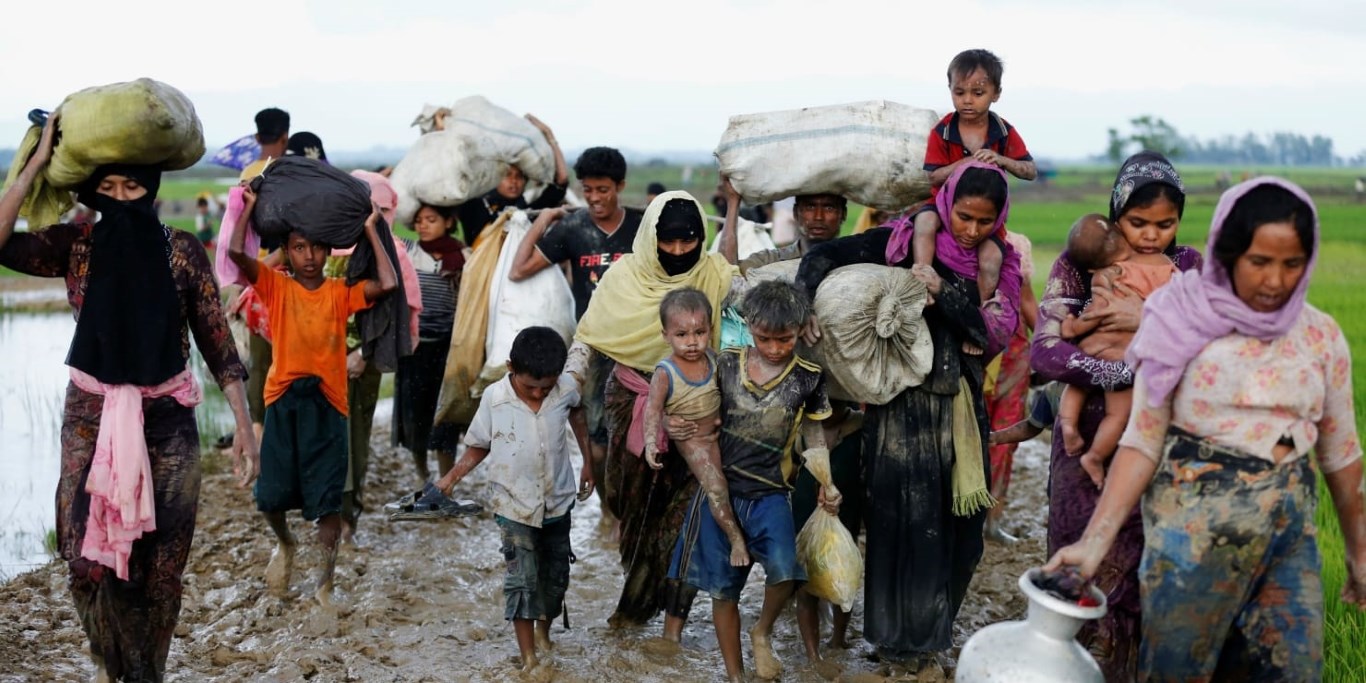The future of Rohingya refugees
January 24, 2018 | Expert Insights

Bangladesh has announced that it will be delaying the repatriation of Rohingya Muslim refugees from Myanmar to Bangladesh.
There are over 650,000 refugees who are currently in Bangladesh and there have been widespread fears that refugees are being forced to return against their will.
Background
A fresh bout of violence erupted in Myanmar on August 25th, 2017. Over 620,000 Rohingya Muslims fled the region as a direct result of it. Those who fled the region under dangerous circumstances have since claimed that the nation’s armed forces were involved in activities such as burning homes and attacking women and children. The government and the military of Myanmar have denied such claims.
The international community has expressed its concern over the plight of the Rohingya Muslims and the escalating violence. For the first time in eight years, the UN held its first public meeting on the situation. UN Secretary-General Antonio Guterres said that the violence in the region has "spiraled into the world's fastest-developing refugee emergency, a humanitarian and human rights nightmare." He added, “We've received bone-chilling accounts from those who fled, mainly women, children and the elderly.”
Most of Rohingya Muslim refugees fled to Bangladesh where many now reside in refugee camps. They have since spoken out about gruesome violence that they managed to escape by braving dangerous journeys. Rakhine State occupies the northern coastline of Myanmar up to the border with Bangladesh and corresponds to the historical Kingdom of Arakan.

Analysis
Doctors without Borders have revealed that at least 9,000 Rohingya Muslims have been killed between August and September due to this violence. In the recent weeks, reports emerged that Bangladesh and Myanmar were engaged in talks to ensure the return of Rohingya Muslims to Rakhine. In January 2018, it was announced that the two countries had agreed upon a deal that stated that all refugees will be returned in another two years.
However, almost immediately, the UN and other rights agencies expressed their concern over this forced repatriation. The UN secretary general, António Guterres, said that further clarification was required regarding whether Rohingya would be permitted to return to their homes or live in specially built camps. He noted, “The worst would be to move these people from camps in Bangladesh to camps in Myanmar.”
Bangladesh has announced that it will be delaying the repatriation of Rohingya Muslim refugees from Myanmar to Bangladesh. There are over 650,000 refugees who are currently in Bangladesh and there have been widespread fears that refugees are being forced to return against their will. There is also concern that aid agencies won’t be able to ensure the safety of hundreds of thousands who fled bloodshed at home.
"In order for the repatriation to be (done) right, to be sustainable, actually viable ... you need to really address a number of issues that for the time being we have heard nothing about," UNHCR head Filippo Grandi said in Geneva, noting that issues like citizenship had not been addressed.
US State Department spokeswoman Heather Nauert said, “People can’t be forced to go home when they don’t feel like they are safe. I think everybody wants to return home in the long haul, but they want to be able to return home when it’s safe to do so.”
Refugees themselves have noted that they won’t return to Rakhine as they are afraid of continued persecution. “My son was killed by the Myanmar army, and still I stayed there," 42-year-old Rohingya refugee Mohammed Salim tells CNN. "But then they destroyed my house, so there was no place for me to stay." Another refugee, Halima Khatun, a young mother said, "If they try to send us back there now, we will not go. If the government of Bangladesh threatens to kill us by cutting our throats, we will not go back even then.”
Assessment
Our assessment is that a rushed repatriation could result in further violence and loss of life in the region of Rakhine. In January, reports emerged that the government drew fire on Buddhist protestors in the region. Many of the refugees who fled Rakhine undertook life threatening journeys to escape the Myanmar and their trust in the government and the military is broken. It is unlikely a rushed repatriation will be successful unless the government is able to convince them of their safety.








Comments